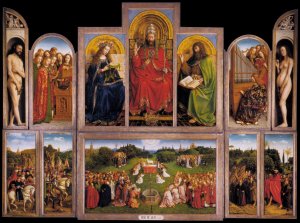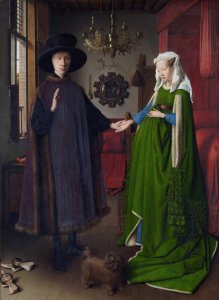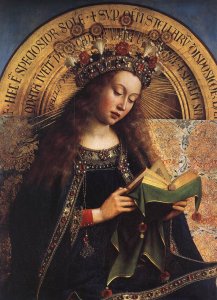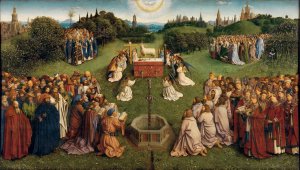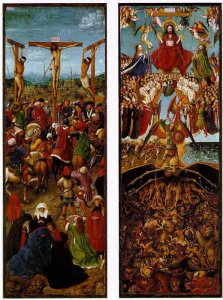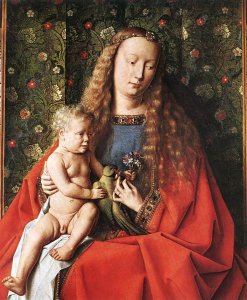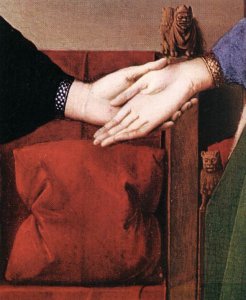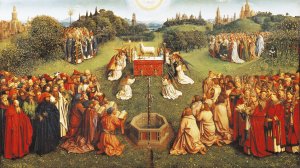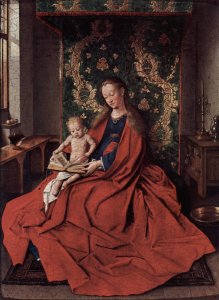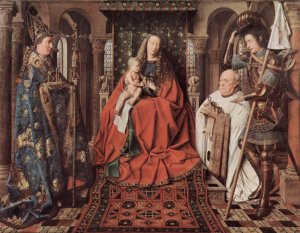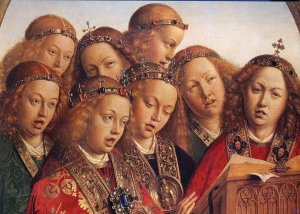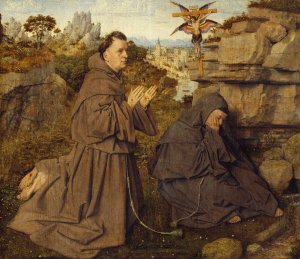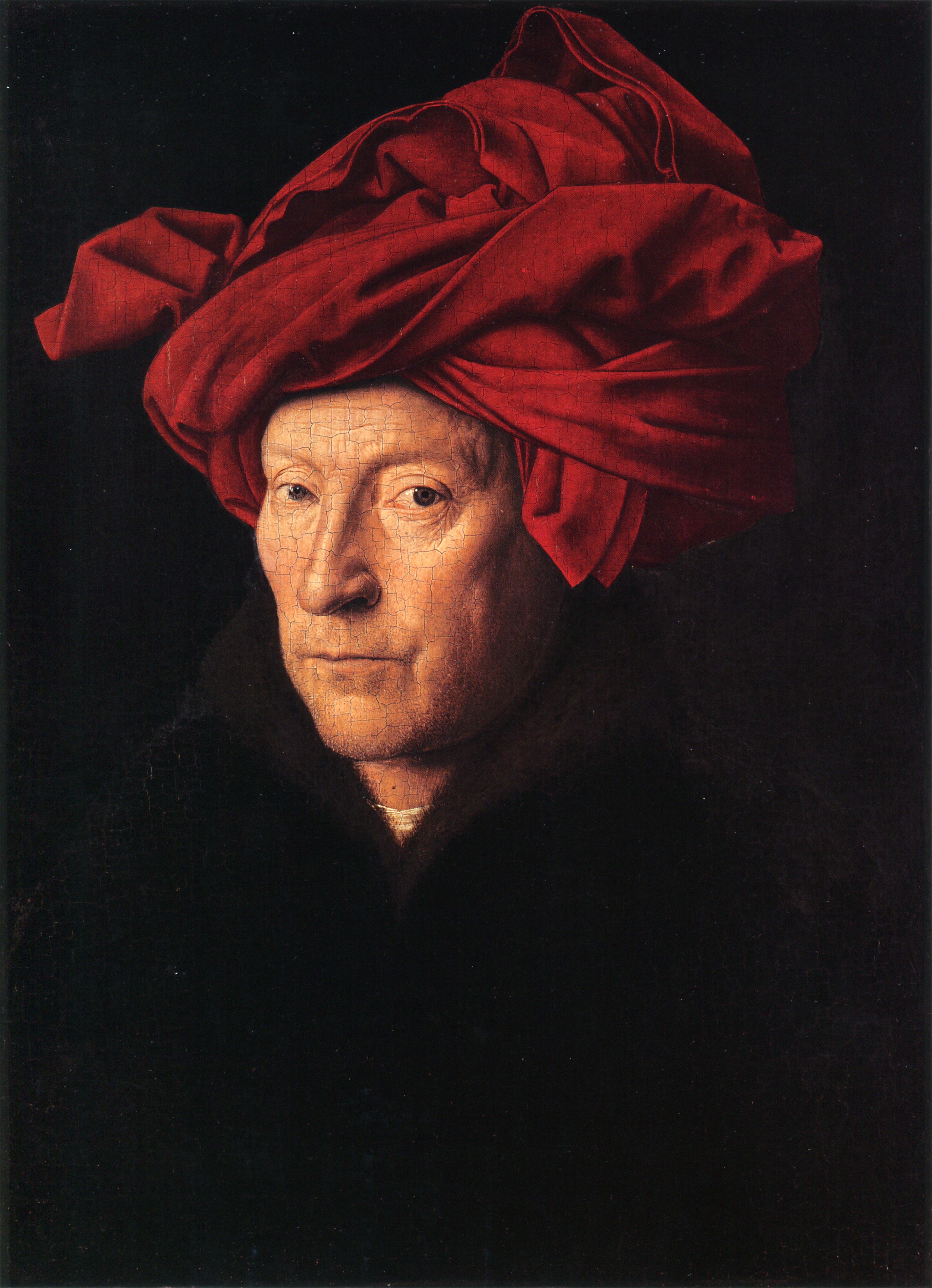
Jan van Eyck or Johannes de Eyck
(before c. 1395 - before July 9, 1441)
Jan van Eyck or Johannes de Eyck (before c. 1395 - before July 9, 1441) was an Early Netherlandish painter active in Bruges and considered one of the best Northern European painters of the 15th century.
There is a common misconception, which dates back to the sixteenth-century Vite of the Tuscan artist and biographer Giorgio Vasari, that Jan van Eyck invented oil painting. It is however true that he achieved, or perfected, new and remarkable effects using this technique.
Jan van Eyck has often been linked as brother to painter and peer Hubert van Eyck, because both have been thought to originate from the same town, Maaseik in Limburg (Belgium). Another brother, Lambert van Eyck is mentioned in Burgundian court documents, and there is a conjecture that he too was a painter, and that he may have overseen the closing of Jan van Eyck's Bruges workshop. Another significant, and rather younger, painter who worked in Southern France, Barthelemy van Eyck, is presumed to be a relation. (From Wikipedia)





